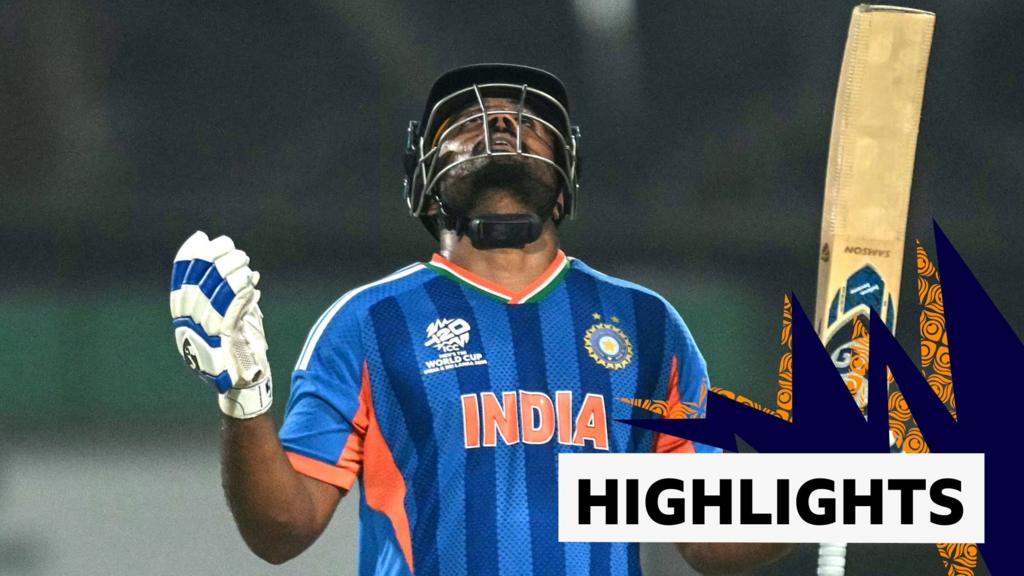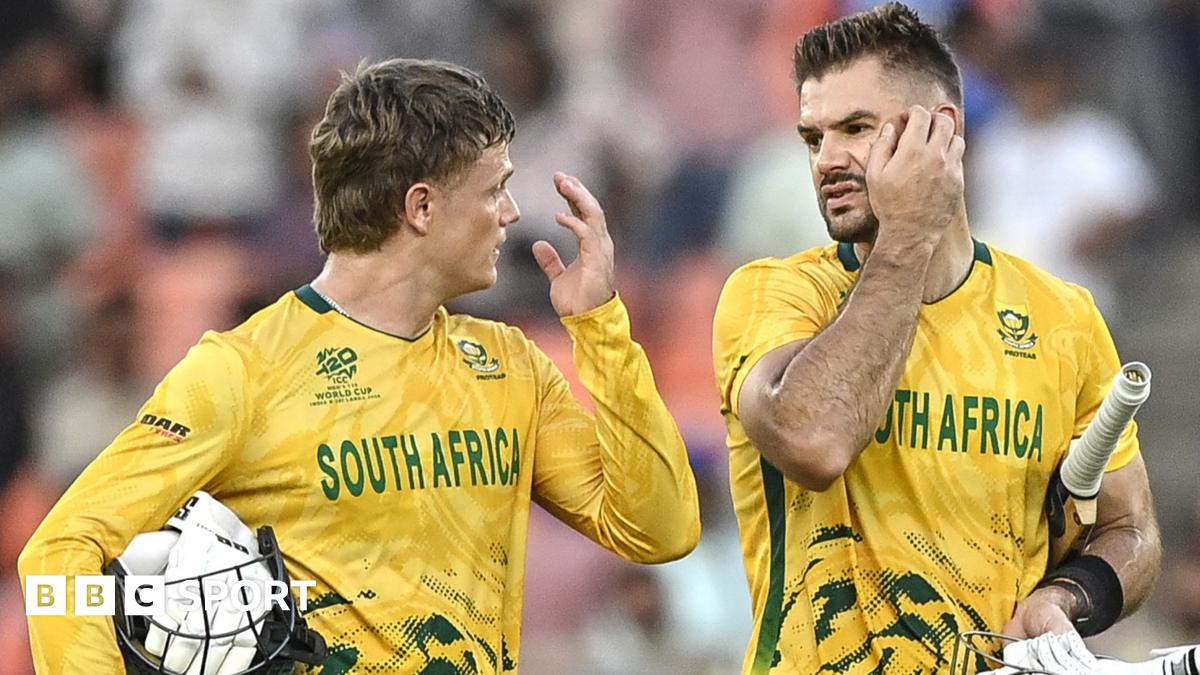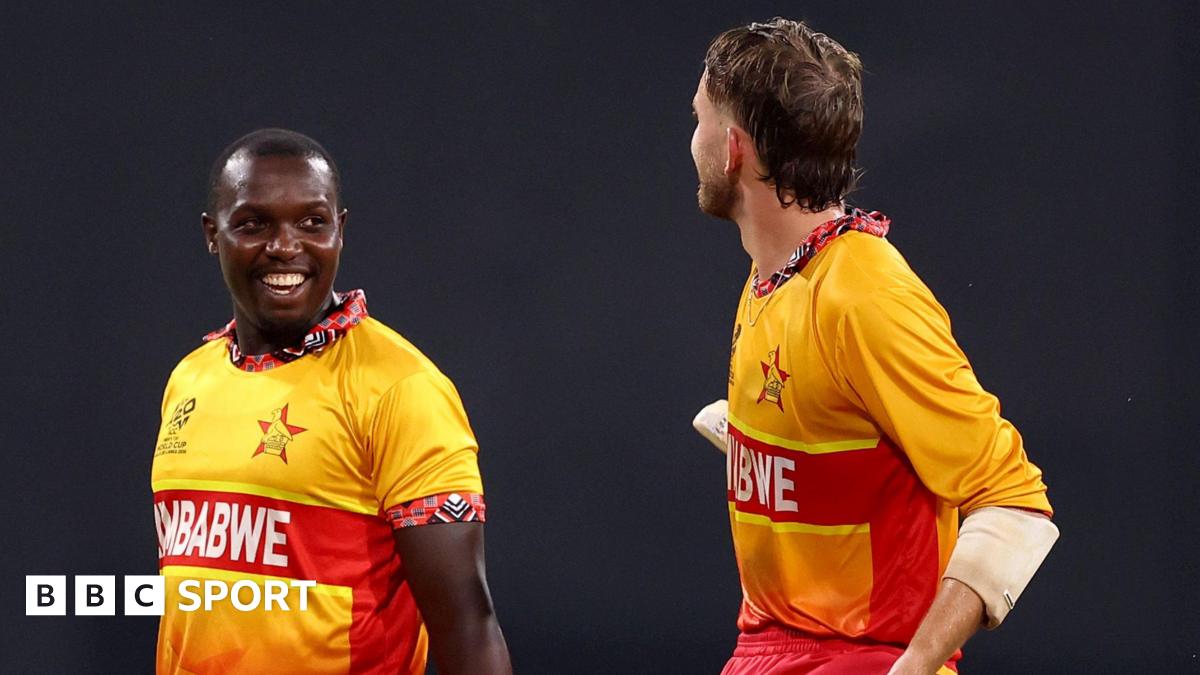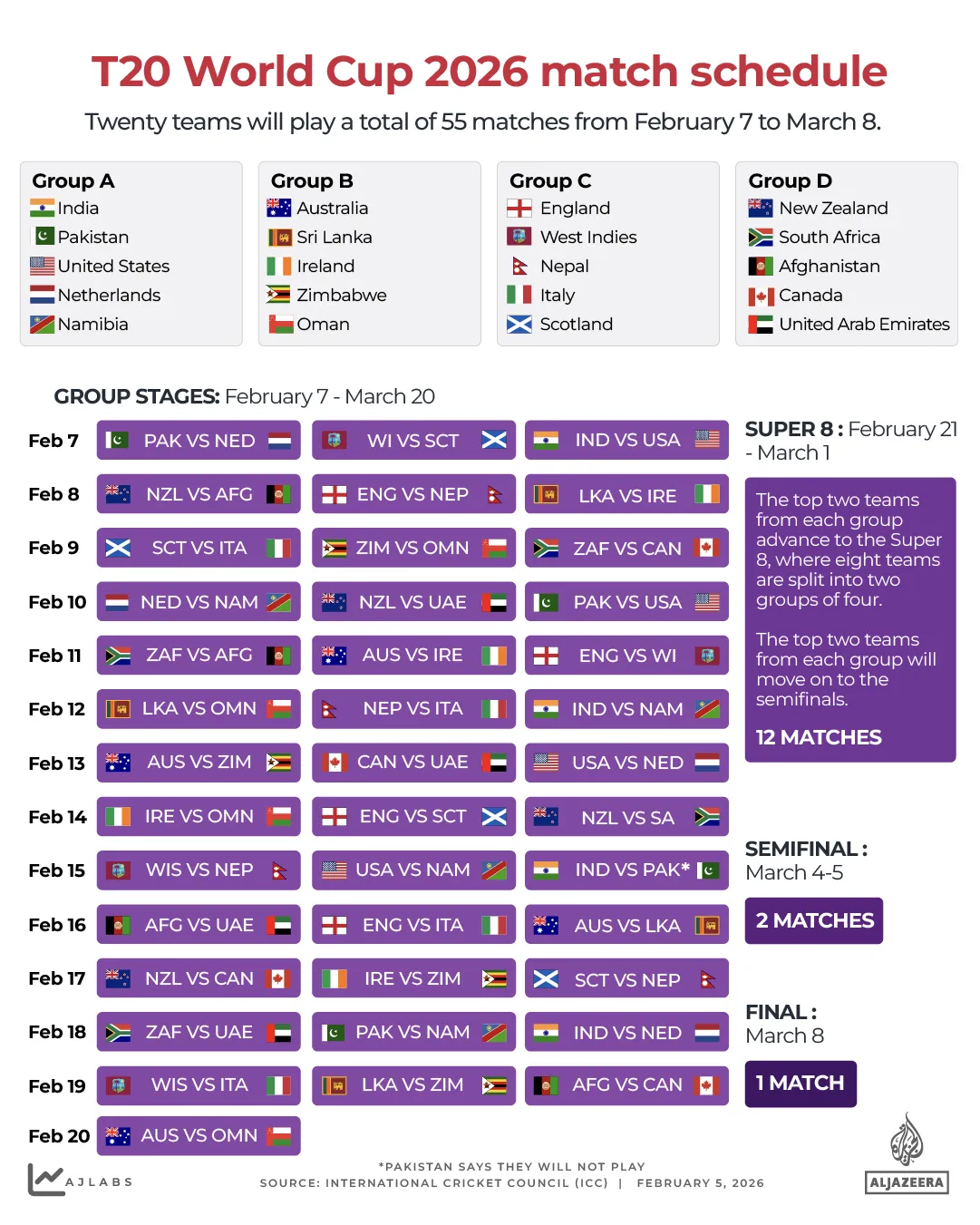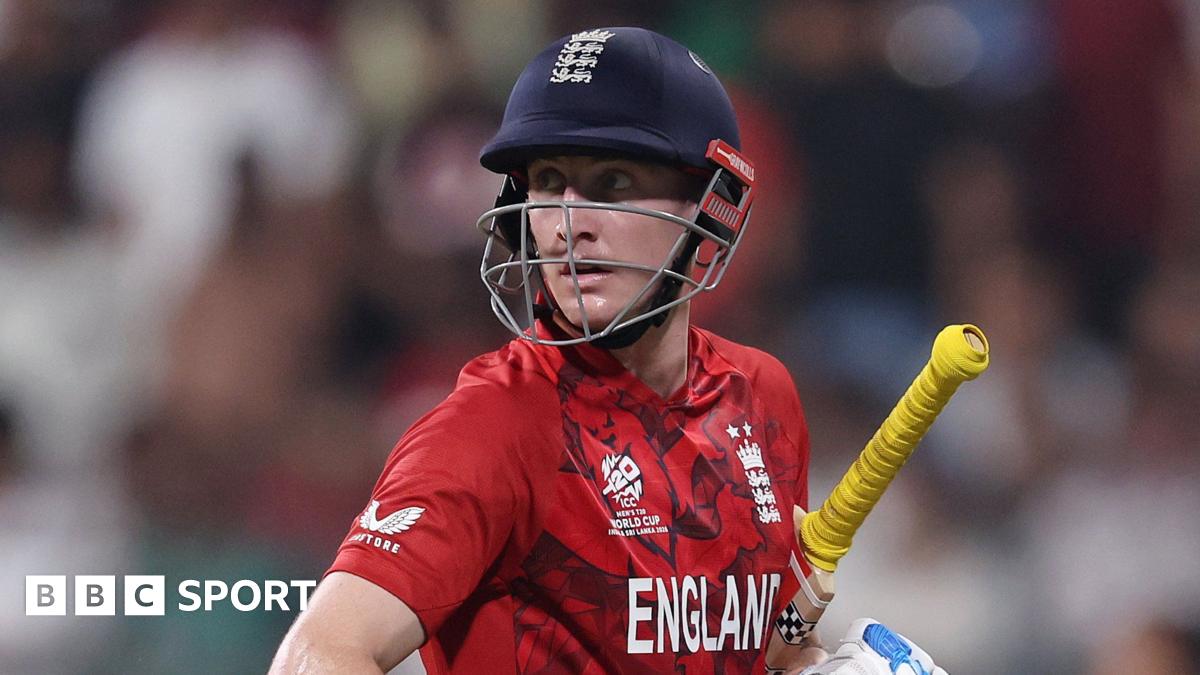India beat West Indies by five wickets to enter T20 World Cup semifinals | ICC Men’s T20 World Cup News
Samson hits 97 not out, West Indian bowling flounders in Kolkata as India set up World Cup semifinal against England.
Published On 1 Mar 2026
Sanju Samson produced one of the calmest innings under the pressure of a run chase to send India into the semifinals of the T20 World Cup with a five-wicket win over the West Indies in Kolkata.
Samson, who returned to the Indian playing XI in the previous match after being overlooked for the three games prior to it, remained not out on 97 as India pulled off an impressive win in front of a packed Eden Gardens crowd on Sunday.
Recommended Stories
list of 3 itemsend of list
The wicketkeeper-batter was the only Indian player to score more than 30 runs as the defending champions faced the Maroons in a winner-takes-all Super Eight game.
In the process, Samson recorded the highest score by an Indian in a T20 World Cup run chase, going past Virat Kohli’s 82 against Australia in 2016 and Pakistan in 2022.
The cohosts will now face England in the second semifinal in Mumbai on Thursday, while New Zealand and South Africa will meet in the first last-four match on Wednesday in Kolkata.
Samson’s cool demeanour in the face of a high target and an expectant home crowd laid the foundation of India’s chase after they lost star batter Abhishek Sharma in the third over.
The 31-year-old from southern India then took control of the innings, hitting regular boundaries in his 50-ball knock. Samson’s 97 not out came off 12 fours and four sixes.
While he enjoyed brief support from India’s top and middle order batters, none crossed the 20-run mark until Tilak Varma scored 27 off 15 balls in a 42-run partnership with Samson.
India’s captain Suryakumar Yadav (18) and Hardik Pandya (17) were the other contributors to the total, which was sealed with two boundaries off Samson’s bat in the last over.
West Indian pacers Shamar Joseph and Jason Holder picked up two wickets apiece as their teammates struggled to control the flow of runs off Samson’s bat.

Earlier, a 68-run opening partnership between captain Shai Hope and Roston Chase gave the West Indies a swift start to their innings.
Chase, who scored 40 off 25 balls, was the more aggressive of the two openers as he made the most of his dropped catch by Abhishek Sharma to take on Axar Patel and Jasprit Bumrah in the first six overs.
Hope was dismissed for 32 after a sluggish innings and replaced by in-form batter Shimron Hetmyer.
The cricket tournament’s fifth-ranked leading run-scorer sped his way to 27 off 12 balls before falling caught behind to Bumrah.
India looked to be in control soon after as the West Indies were reduced to 119-4 in the 15th over. But a strong finish from Rovman Powell and Jason Holder took the 2012 and 2016 champions to 195.
Powell was unbeaten on 34 and Holder on 37 off 22 balls as they looked to put the pre-tournament favourites under pressure in front of a packed Eden Gardens.
Bumrah was the pick of the Indian bowlers with two crucial wickets off his four overs.
Pandya and Varun Chakravarthy picked up the other two West Indian wickets.


